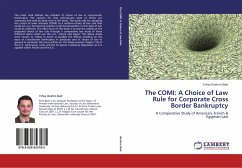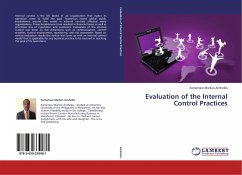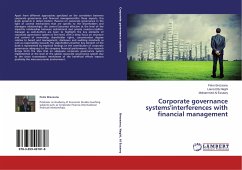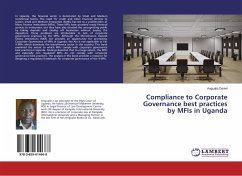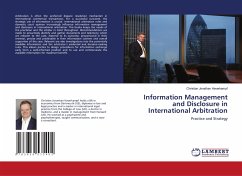
Corporate Law Shareholders' Control of Corporate Management in Nigeria
Versandkostenfrei!
Versandfertig in 6-10 Tagen
69,99 €
inkl. MwSt.

PAYBACK Punkte
35 °P sammeln!
This research work appraises shareholders' control of corporate management in Nigeria.The justification for it lies in the need for shareholders to have authority to take decisions that affect their property and check management inadequacies.Traditional company law principles seek to prevent fraud against the shareholders and are pervaded by the philosophy of disclosure and publicity.Like most of the doctrines that emerged from the history of English company law, it was pre-occupied by shareholders' protection rather than shareholders' control.The device of the corporation marks a distinction ...
This research work appraises shareholders' control of corporate management in Nigeria.The justification for it lies in the need for shareholders to have authority to take decisions that affect their property and check management inadequacies.Traditional company law principles seek to prevent fraud against the shareholders and are pervaded by the philosophy of disclosure and publicity.Like most of the doctrines that emerged from the history of English company law, it was pre-occupied by shareholders' protection rather than shareholders' control.The device of the corporation marks a distinction between the shareholders and the company and provides a basis for the allocation of powers to the shareholders and Board of Directors,the two organs of management.In this connection, shareholders' control is determined by the relation between the two organs of management. Despite the enormous powers that are vested in the Shareholders in General Meeting, shareholders exercise weak control.Itis recommended a change in the structure of management by creating a two-tier representative board system, under which there should be a non-executive supervisory board to be appointed by the shareholders.







